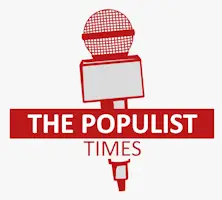French President Emmanuel Macron’s invitation to the National Rally to appoint a new prime minister signals a seismic shift in the nation’s political landscape, marking a break from tradition in an effort to stabilize governance.
At a Glance
- President Macron initiated new talks with political party leaders to form a new government and appoint a prime minister.
- Macron refused to appoint Lucie Castets, the candidate proposed by the left-wing New Popular Front (NFP) alliance, as prime minister.
- The recent parliamentary elections resulted in a split parliament, with no party gaining an overall majority.
- Macron is expected to choose a centrist candidate for prime minister, potentially leading to another election next year.
Political Landscape and Recent Elections
French President Emmanuel Macron invited the National Rally to appoint a new prime minister following an election that muddied the waters of party control. Macron’s decision showcases a willingness to break from tradition to stabilize governance. The July parliamentary elections resulted in a split parliament: the New Popular Front (NFP) won 190 seats, Macron’s centrist alliance secured 160, and the populist right National Rally gained 140 seats.
Macron urged left-wing parties to cooperate with other political forces to create “institutional stability.” However, the NFP, comprising France Unbowed (LFI), the Socialist Party (PS), the Greens (EELV), and the Communist Party (PCF), expressed outrage over Macron’s decision to exclude Lucie Castets as a prime minister candidate. Some lawmakers called for his impeachment.
Implications for Coalition and Legislation
Macron appointed Gabriel Attal as caretaker prime minister, pressuring him to pick a new prime minister before the October 1 deadline to present a draft 2025 budget. The NFP won the most seats but not an overall majority, complicating the formation of a coalition government. The LFI, National Rally, and conservative Republicans were not invited to new talks, while the Socialists, Greens, and Communists refused to participate.
The split parliament has created a scenario where no single party holds a definitive majority. Macron’s centrist coalition came second with 168 seats. This division could lead to months of political maneuvering and negotiations to form a stable coalition government. The divided Parliament may require parties to work together on a case-by-case basis to pass legislation.
Macron’s decision to block the left-wing choice for prime minister and reach out to the National Rally has significant implications. It signals that Macron is willing to break political norms to achieve governance stability, to some. To others, it reveals the instability of the left-wing coalition in the country that has repeatedly conspired to block Le Pen’s National Rally from winning in parliamentary and presidential elections. Macron is expected to stay in office until his term ends in 2027, but the current political deadlock could diminish France’s influence on the European and global stages.
The political situation remains uncertain, and forming a coalition government is not guaranteed. Given the lack of recent history of bipartisan power-sharing in France, the upcoming period may involve significant political negotiations and potential instability.


